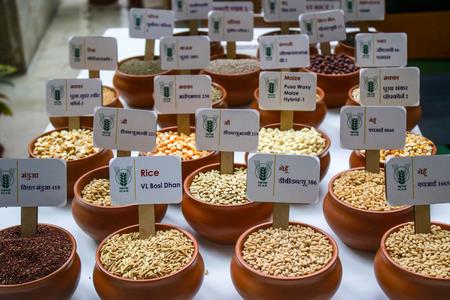
Centre Aims To Scale Up Domestic Pulses Production To 350 Lakh Tonnes By 2030-31
Nearly 2 crore farmers are expected to gain from guaranteed procurement, quality seed distribution, and enhanced value chain support, according to an official statement.
Over the years, India has experienced a significant transformation in pulses production. Consistent government efforts under the National Food Security and Nutrition Mission (NFSNM) have driven production up from 192.6 lakh tonnes in 2013–14 to 252.38 lakh tonnes in 2024-25(third Advance Estimates), reflecting an impressive growth over 31 per cent.
While this progress is commendable, considerable potential remains to further enhance production and meet the country's increasing consumption requirements.
In 2023–24, India imported 47.38 lakh tonnes of pulses, even as it exported 5.94 lakh tonnes, highlighting opportunities for structural improvement.
This reflects that, despite being among the world's largest pulses producers, India's domestic production has significant scope to grow to fully meet demand, making imports a necessary supplement.
With pulses imports reaching 47.38 lakh tonnes in 2023–24, the government has prioritised achieving self-sufficiency in pulses as a key national objective, the statement added.
Beyond their economic and trade significance, pulses serve as a nutritional powerhouse. As per the National Institute of Nutrition, they contribute nearly 20-25 per cent of total protein intake in Indian diets.
However, the per capita consumption of pulses continues to fall short of the recommended 85 grams per day, contributing to protein-energy malnutrition across the country. Therefore, enhancing domestic production is not only an economic necessity but also a vital step toward improving public health.
Recognizing this dual importance, the government has placed strong emphasis on strengthening the pulses sector.
The 'Mission for Aatmanirbharta in Pulses' was announced in the Union Budget 2025–26 and was approved by the Union Cabinet on October 1 2025.
It seeks to boost domestic production, reduce import dependence, and pave the way for an“Aatmanirbhar Bharat” in pulses.
To ensure effective implementation, states will prepare rolling five-year seed production plans, with breeder seed production monitored by ICAR and quality assurance maintained through the SATHI portal.

Legal Disclaimer:
MENAFN provides the
information “as is” without warranty of any kind. We do not accept
any responsibility or liability for the accuracy, content, images,
videos, licenses, completeness, legality, or reliability of the information
contained in this article. If you have any complaints or copyright
issues related to this article, kindly contact the provider above.


















Comments
No comment